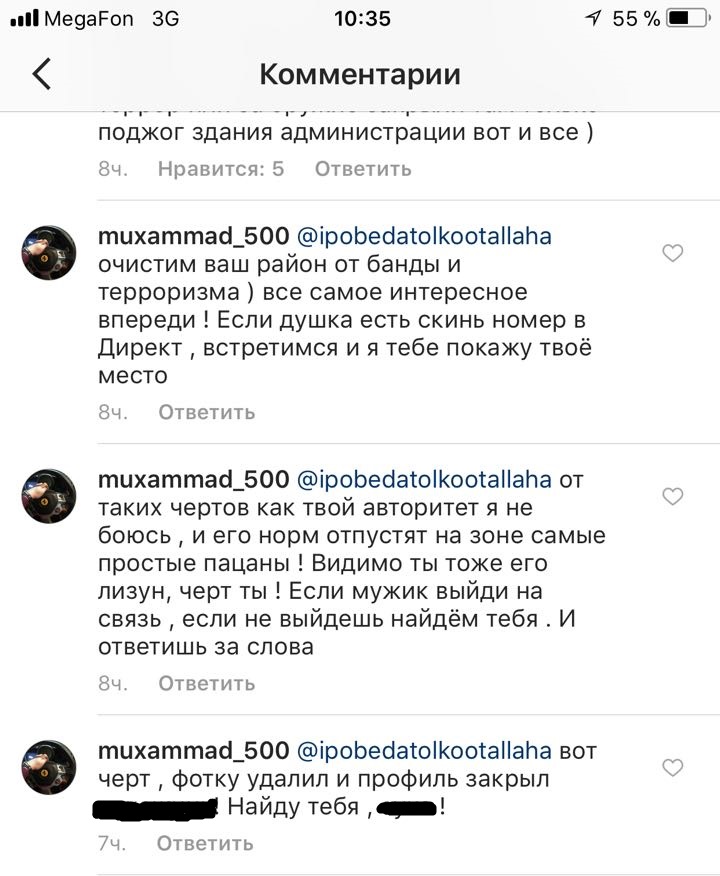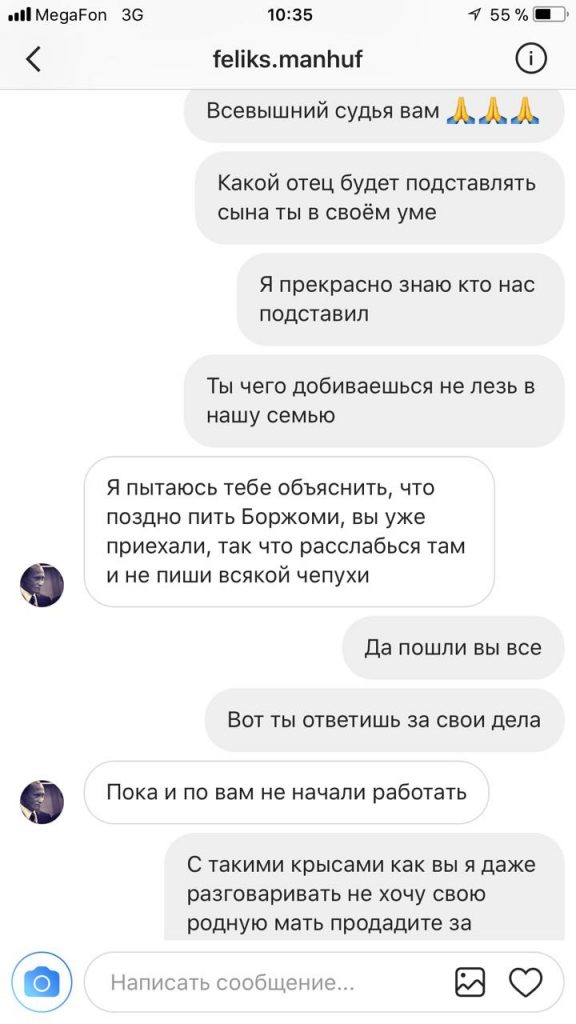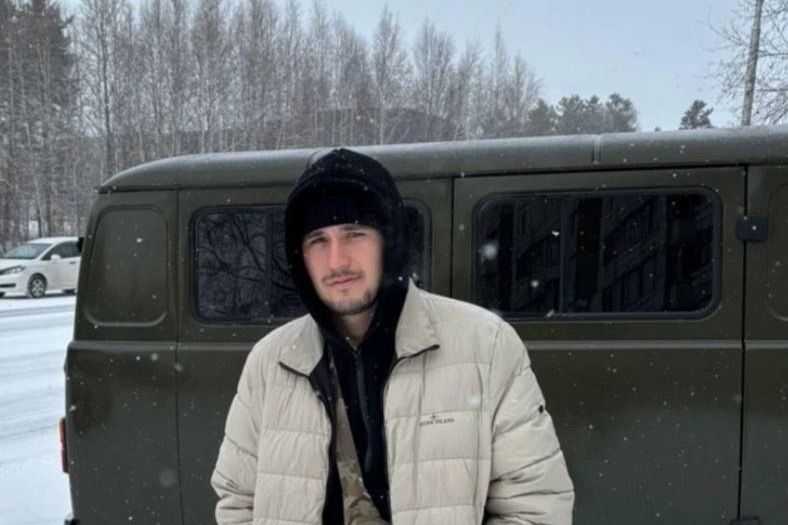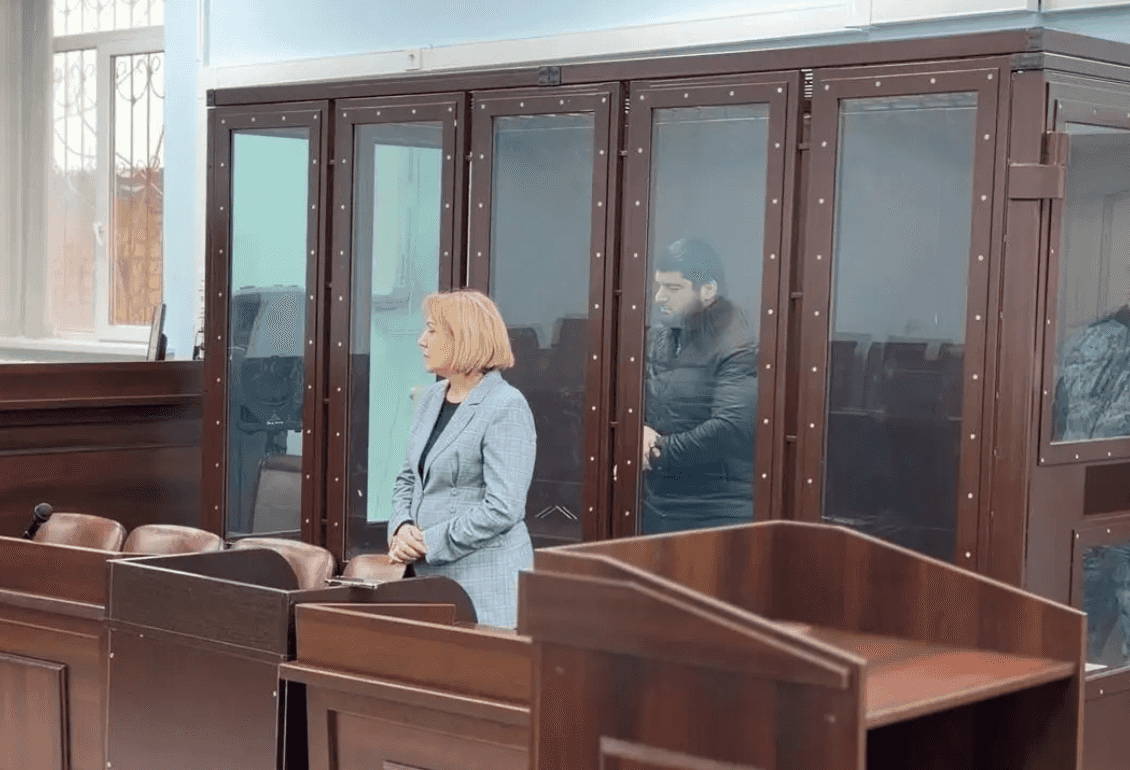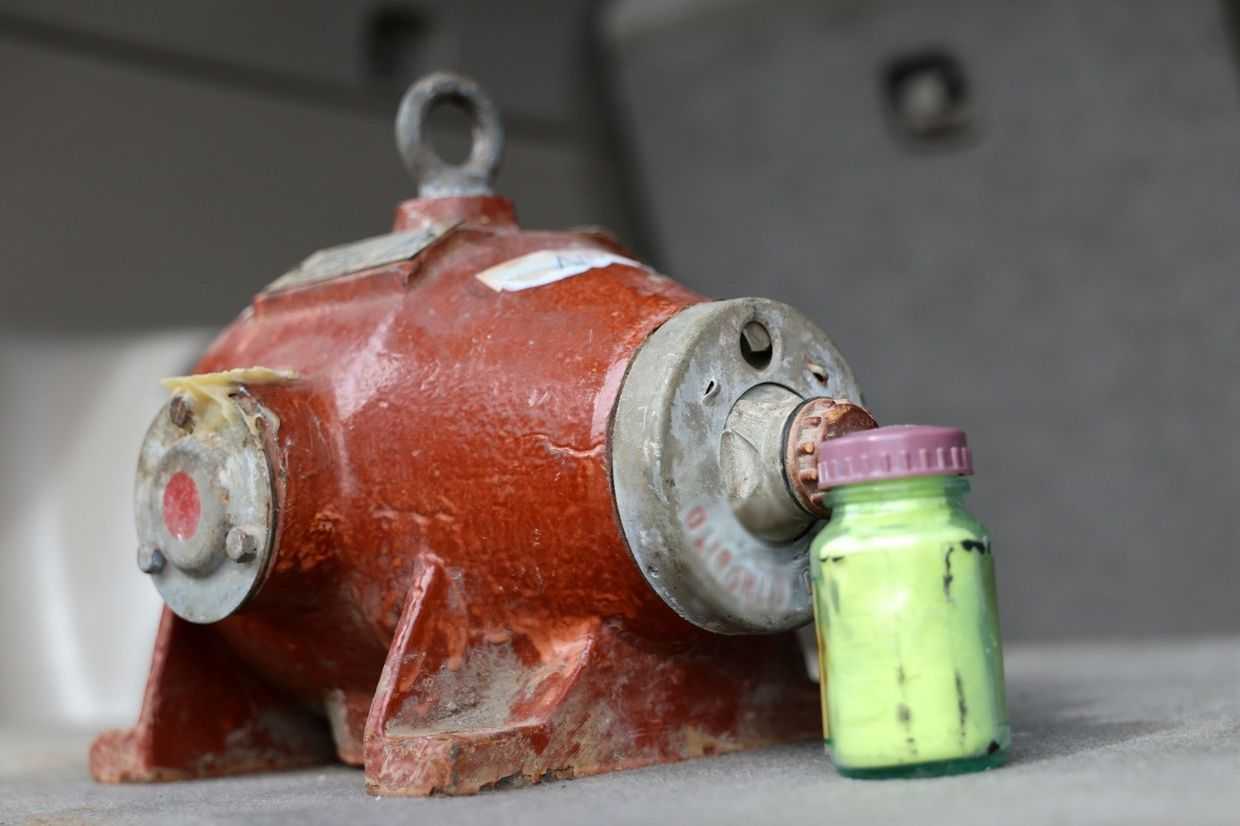
 Four men from a small mountain village in southern Russia were detained in November suspected of setting fire to the local government building. With holes in the official story and torture apparent, relatives of the men say the charges are the work of a new police chief in town, trying to make a name for himself.
Four men from a small mountain village in southern Russia were detained in November suspected of setting fire to the local government building. With holes in the official story and torture apparent, relatives of the men say the charges are the work of a new police chief in town, trying to make a name for himself.
On 24 November, 32‐year‐old Akim Kuliyev was delivered to a local clinic in the village of Akhty with signs of a severe beating and other injuries. He was taken directly from Akhty’s police station. According to his relatives, he had been tortured in the station all night.
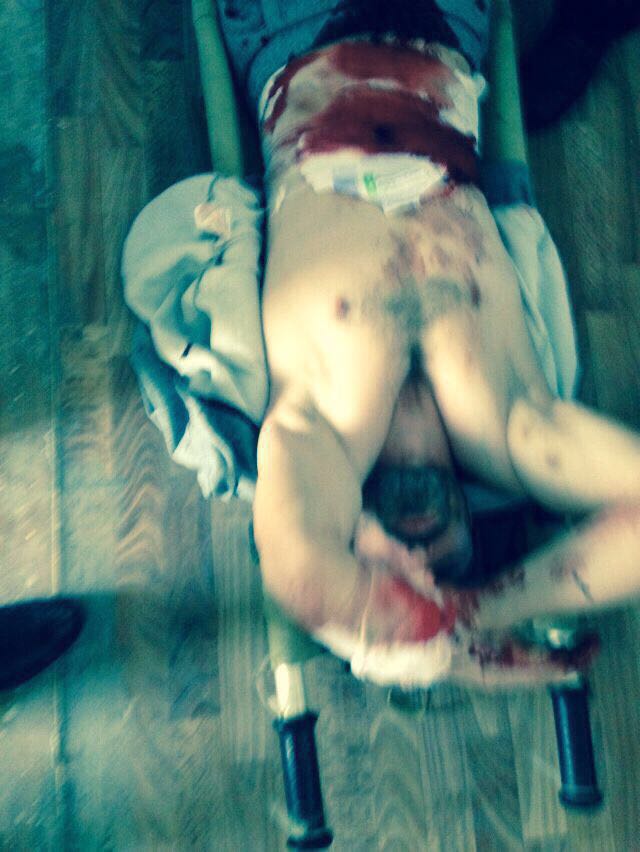
‘Akim Kuliyev had spent 20 days in Makhachkala’s detention centre. On 23 November, our attorney arrived there and that’s when we found out that Akim was taken to Akhty’, Akim’s relatives told OC Media.
At the police station in Akhty, Akim’s lawyer told his relatives that he had been tortured all night and that he had not been allowed to meet with Akim.
‘We saw the ambulance driving up to the police station. No-one told us that they were coming for Akim. When the door opened, I saw him, covered in blood. We managed to get to the hospital before the ambulance. While he was in surgery, a police squad arrived at the hospital, there were fifty of them. We were not allowed to enter, Akim’s wife, Elada Kuliyeva told OC Media.
According to Elada, she was allowed to see her husband for only a couple of minutes after surgery, before police took him, still with fresh wounds, to the pretrial detention centre in Makhachkala. Akhty is 250 km away from Makhachkala.
Testimony under torture
The story begins in the mountain village of Rutul, 160 kilometres to the south of Makhachkala, in southern Daghestan’s Rutul District. It is considered one of the more peaceful areas of Daghestan — there have been no special operations to search for or detain any militants until this point.
On 4 November, five people were detained, including one minor, on suspicion of setting a local government building on fire. The minor was, according to villagers, ‘detained illegally for a day’ and then released. The other four men are currently being held in Makhachkala’s pretrial detention centre — they are Akim Kuliyev, whose signs of torture can be seen on the photo, Efendi Alimov, Muradin Eminov, and Suleyman Guseynov.
All four men are accused of ‘deliberately destroying property by arson’ and ‘illegal storage of drugs on a large scale’. In addition, Alim Kuliyev and Muradin Eminov have been charged with ‘illegal storage of weapons and ammunition’.
The fire in the district administration building occurred on the night of 13 September. According to relatives of the detainees, there was no expert examination as such, and the cause of fire was only stated as ‘probable’.
Muradin Eminov is married and has four young children. He is seriously ill, but still works at a petrol station to feed his family.
Efendi Alimov lives in the village of Amsar. The charges are based on his testimony, according to which he paid each of the participants ₽2,000 ($35) to help him set fire to the building.
‘Efendi later confessed to his lawyer that he gave this testimony under torture. He said that he couldn’t take it. He cried during the court hearing [when preventive measures for the detainees were announced]’, Akim’s wife Elada Kuliyeva told OC Media.
The fourth detainee, Suleyman Guseynov, is the son of local police detective Sultan Guseynov. According to people in the village, he is a professional athlete.
Relatives of the detainees say that the men weren’t connected with each other in any way, except for Akim and Muradin. They have a professional relationship — Akim is the owner of the petrol station where Muradin works.
Detention of a ‘militant’
Alim Kuliyev was detained early morning on 4 November. His wife Elada told OC Media that 70 officers from the Centre for Combatting Terrorism came to apprehend him. Their children, two and five years old, were at home at the time.
His wife says Alim came to meet them without resistance, assuming it was a mistake. ‘As soon as he went outside, one of them pushed him from behind with an assault rifle. He was immediately handcuffed, as if he was a bandit [militant]’, Elada says.
Afterwards, the officers rushed into the house and began to search their belongings — first right after Alim was apprehended, and then once again later.
‘Some of them, right in front of my eyes, put drugs into my husband’s pocket. And then they called their witnesses, turned on the camera, recorded me, my husband, and our children, as if it was all scripted, and began to conduct the second search’, Elada said.
Akim’s old car was parked in the Kuliyevs’ courtyard. It was open. According to Elada’s testimony, the officers planted a weapon in it and forced Akim to take it into his hands, ‘so he left his fingerprints’. They threatened that if he resisted, they would ‘give him more [weapons]’.
Their house stands at the foot of a hill overlooked by the local police station, and Elada says if they were militants, they would be stupid to keep weapons in an open car for police to see.
The Kuliyevs’ house was then cordoned off.
The fire
Local residents told OC Media that the head of the local administration had his office on the second floor of the burned government building. Relatives of the detainees are convinced that the fire was an accident, and started from here.
‘If it were arson, the building would burn from below’, they said. According to the villagers, only employees are allowed to enter the second floor. The building was guarded even at night.
OC Media spoke with one of the first witnesses on the scene, on condition of anonymity.
‘I wasn’t alone. There were two other villagers with me. A few minutes before the fire, we were walking past the government building. There was absolutely no one, everything was fine, we didn’t notice anything. Then we stopped at Godekan [the village’s centre where people often gather] and noticed smoke. From where we stood it wasn’t possible to see through the trees what exactly was burning’, he said.
According to the witness, their first thought was that the village transformer had broken down again. It took them a minute to realise that the government building was on fire.
‘We quickly drove towards the building. When local police officers cordoned the site off, we walked around the adjacent area and didn’t notice anything suspicious’, they told OC Media.
CCTV footage
Farida Guseynova, Suleyman Guseynov’s mother, told OC Media that a couple of days after the fire, a page called Sabrutul was created on Instagram. It included a post with information about the fire.
‘The post included the personal data of Akim, my son, and Muradin. It was written that they had committed arson. Upon learning this, we asked my son where he was that night and with whom. He replied that he was with his friends in the sulphur baths in the neighbouring village. He told me what time he returned home’, Farida Guseynova said.
Later, Suleyman’s parents verified his claim with their external surveillance camera. According to Farida, the time he named was correct, and her husband reported this to the head of the Rutul police department, Artyom Magomedov.
Suleyman’s relatives provided OC Media with video recordings from two outdoor surveillance cameras. They show that on 14 September between 00:57 and 01:12, Suleyman was standing in front of the house’s gate in the company of two young people. They discuss something and then Suleyman goes inside.
‘We recorded this video. It clearly shows that at 00:55 they arrived at the house and talked for ten minutes. Then the friends left and Suleyman went home. The fire happened at 2 am’, Farida said.
According to her, Suleyman left the house again at around 02:30 with his father, after police came to inform his father, a local detective, about the fire, and he asked to come along.
‘At this time, the son was also at home and left together with my husband. This was seen by the police officer who summoned him. After some time, an order was given from above — to solve this crime at any cost. Since they were unable to solve it, they decided to fabricate it’, Farida Guseynova said.
A new police chief in Rutul
According to Elada, the arson theory is contrived, and it removes responsibility for the fire from the head of the district. For two months, neither Akim, nor other detainees were ever interrogated in the district police station on suspicion of arson.
Akim’s relatives suspect that the new Chief of Police of Rutul District, Artyom Magomedov, might be involved.
Magomedov also comes from Rutul District, but he never lived there. Before his appointment, he worked at the Centre for Combatting Terrorism. Akim Kuliyev is his cousin.
Magomedov was appointed police chief over the summer and the fire occurred in September. For almost two months, no one from the village was questioned about the fire. But in November, four people were detained.
Akim Kuliyev’s relatives believe the police chief could be accusing local people, despite family ties, for his own benefit.
‘He needed these detentions to score points with his superiors and to earn a medal for “solving” the case’, Elada says.
According to her, Magomedov brought his own people to work with him. The strangers in the village frighten many. Several people were dismissed from local police after Magomedov’s appointment.
Relatives of the detainees are sure that the new police chief deceived the republic’s Ministry of Internal Affairs, providing false information about alleged militant groups in the village.
Fighting for justice
In search of justice, relatives of the detainees sought help from journalists and bloggers. According to them, this is not always safe. After they described their case in several popular Daghestani Instagram profiles, they began to receive threats.
Now they are trying to arrange an independent expert examination of the fire in the government building.
The lawyers of the accused have appealed to the Prosecutor’s Office complaining about the illegal actions of the Centre for Combatting Terrorism during the detentions, and how they exceeded their official powers.
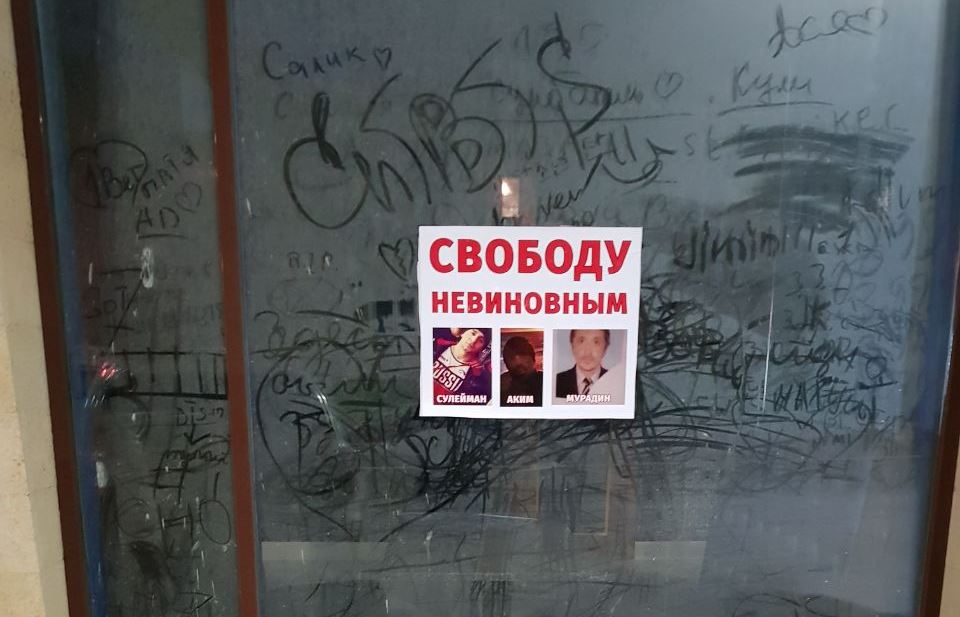
Meanwhile, friends and relatives of the detainees are putting up posters of them around Makhachkala, with the slogan ‘Freedom to the innocent’. According to the relatives, they are ready to stage a rally in Makhachkala’s central square in the near future if the situation isn’t resolved, demanding a meeting with Daghestan’s Minister of Internal Affairs as well as the interim head, Vladimir Vasilyev.

